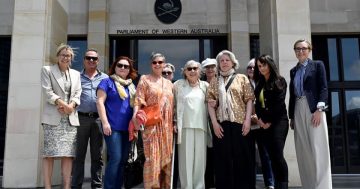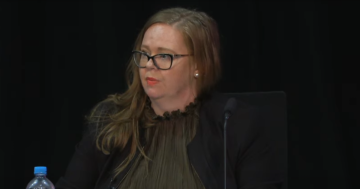 The newly appointed head of Northern Ireland’s Public Service has made a spirited defence of the bureaucracy, saying it could not be defined by the past failings of the Renewable Heat Incentive (RHI) scheme.
The newly appointed head of Northern Ireland’s Public Service has made a spirited defence of the bureaucracy, saying it could not be defined by the past failings of the Renewable Heat Incentive (RHI) scheme.
Jayne Brady told members of the Legislative Assembly’s Finance Committee that she was committed to following through with reforms recommended by a public inquiry into the green energy scandal but she was not going to “dismantle” or do a “hatchet job” on the Public Service.
“What I am determined to deliver will not be achieved by only reacting to the past, but will require positive actions to equip it for the future,” Ms Brady said.
The RHI scheme, set up in 2012, incentivised businesses and farmers to switch to eco-friendly boilers by paying them a subsidy for the wood pellet fuel required to run them.
Mistakes in its designs saw the subsidy rates set higher than the actual cost of the wood pellets with applicants finding themselves able to burn to earn.
A public inquiry identified a multiplicity of mistakes in the running of the scheme and made 44 recommendations aimed at addressing the litany of failures identified by the investigation.
However, many of the recommendation remain unimplemented and only one Public Servant was formally disciplined.
“I am conscious that we must give serious attention to those areas where our performance has not always been what we or the public would wish,” Ms Brady told committee members.
“In particular, we need to act on the findings of the RHI Inquiry and deliver against its recommendations.”
Meanwhile, Ms Brady has confirmed there is to be a review of the rules for Public Service secondments from the private sector.
This follows the appointment of her predecessor, Jenny Pyper, to the board of Firmus Energy shortly after Ms Pyper’s nine months as Interim Head of the Public Service.
Ms Pyper (pictured), the former head of the Utility Regulator, was not a Public Servant while heading up the Public Service and was therefore not subject to any ‘cooling off’ period before moving to the private sector.
When leaving the public sector, senior Public Servants are often prevented from taking roles with private companies for up to two years.
Ms Pyper is, however, prevented under guidelines from lobbying on behalf of Firmus Energy for 12 months.
Ms Brady said the Public Service was actively seeking secondments from the private sector and gave assurances that the process would be open and transparent.
Belfast, 28 November 2021











